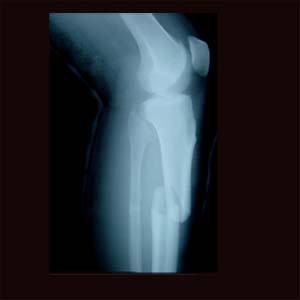There is new evidence that long-term use of the most widely prescribed bone loss drugs may increase the risk for uncommon but serious femur (thigh bone) fractures. In an analysis involving more than 200,000 postmenopausal women, those who took oral bisphosphonates for more than five years were more than twice as likely to experience the fractures as women who took the drugs only briefly. But the fractures were still quite rare, occurring in about one in 1,000 women who took the drugs for five years or more, a study researcher tells WebMD.
 |
| bone loss drugs may increase the risk |
"People with a high risk for osteoporosis-related fractures should not stop taking these drugs because, on average, the benefits will far outweigh the risks," says Laura Y. Park-Wyllie, PharmD, of the University of Toronto's Institute for Clinical Evaluative Sciences. "But long-term use of these drugs may warrant reconsideration in people who have a relatively low fracture risk." The study appears in the Feb. 23 issue of the Journal of the American Medical Association.
Popularity of Bisphosphonates About 50% of women over the age of 50 will suffer a fracture related to bone loss, and one in five patients who have such fractures will die within a year, recent studies suggest.
Millions of Americans take bisphosphonates like Actonel, Atelvia, Boniva, and Fosamax to prevent osteoporosis-related fractures. The drugs work well, reducing the risk of hip, spine, and other common fractures associated with weakened bones. But anecdotal reports of a possible link between long-term use of bisphosphonates and the rare femur fractures began surfacing several years ago.
Last fall, the FDA announced that it would require label changes on bisphosphonates to warn of a "possible risk of atypical thigh bone fracture" in long-term users. "While it is not clear whether bisphosphonates are the cause, atypical femur fractures ... have been predominantly reported in patients taking bisphosphonates," FDA officials noted in a news release issued at the time.
In the newly published study, Park-Wyllie and colleagues identified 205,466 women in their late 60s and older who started therapy with an oral bisphosphonate between 2002 and 2008.
The women were followed until the spring of 2009, during which time 716 were hospitalized for thigh bone fractures. These cases were matched with almost 3,600 women in the group who did not suffer the thigh-related fractures. Women who took bisphosphonates for five years or longer were found to have a 2.7-fold greater risk for the fractures than women who took them for less than 100 days.
A secondary analysis found that women who took a bisphosphonate for three or more years had about a 24% lower risk of osteoporosis-related fractures than women who took the drugs for less than 100 days. The researchers concluded that some long-term bisphosphonate users may benefit from a "drug holiday" -- stopping the drugs for a while and then restarting -- but Park-Wyllie says this has not been studied.
 4:58 AM
4:58 AM
 Current Latest Health News International
Current Latest Health News International








0 comments:
Post a Comment